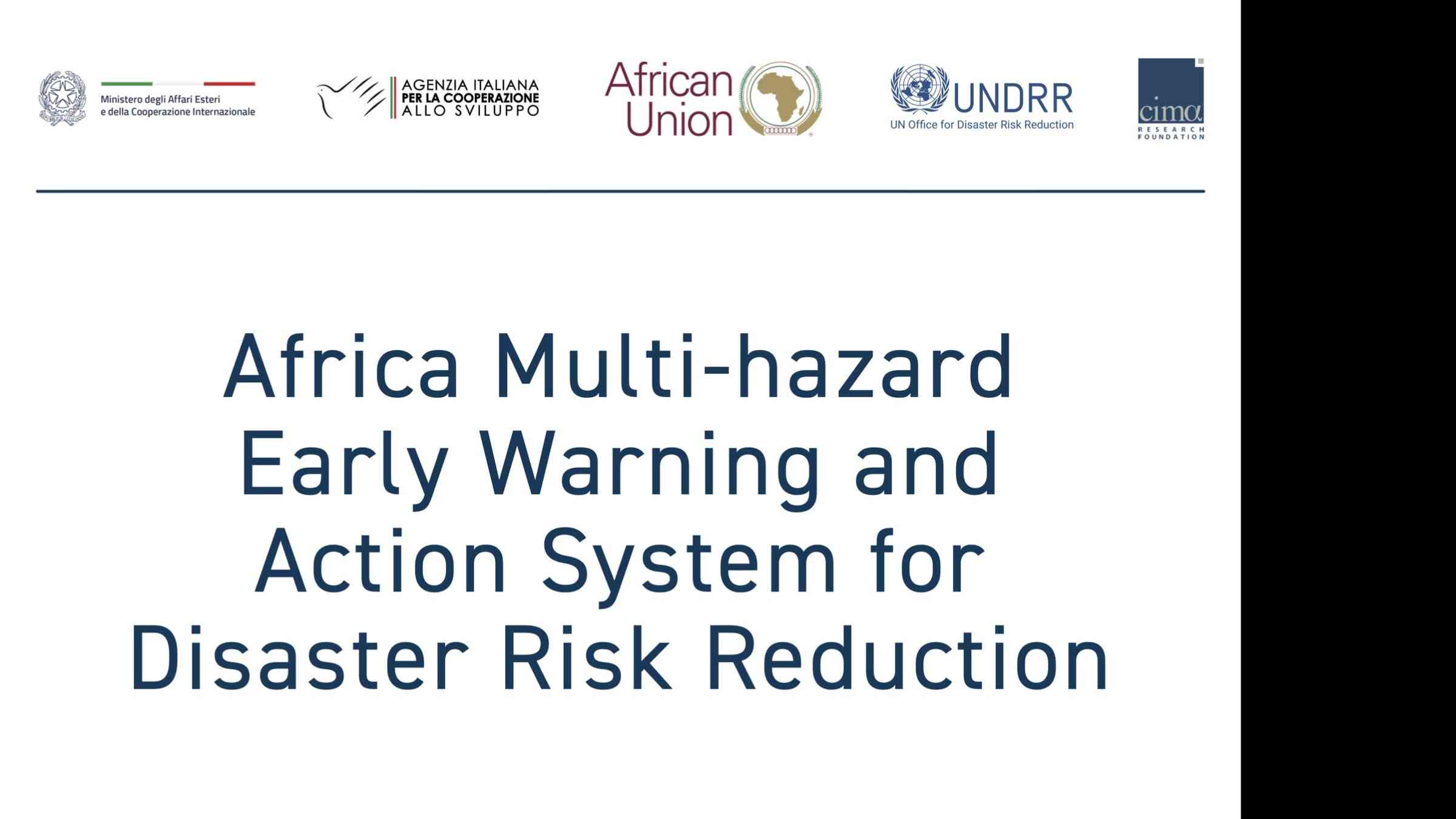African experts validate Institutional Framework for Multi-Hazard Early Warning Systems and Early Action

A Multi-Hazard Early Warning/Early Action Conference was convened from 20-22 October 2021 in Nairobi, Kenya. The conference was organized by the African Union Commission (AUC) and supported by United Nations Office for Disaster Risk Reduction (UNDRR). The event was attended by representatives from Regional Economic Communities (RECs), African Member States as well as other stakeholders. They came together to appraise, discuss and validate the MHEWS/EA Framework and to provide critical inputs required for the development of the standard operating procedures (SOPs) and data sharing policy of the MHEWS/EA Framework and the Continental MHEWS/EA Situation Room.
The consensus was reached among participants following deliberations at the conference. The provides operational guidance on Multi-Agency and Multi-Sectoral coordination and communications structures at the Member State, Regional and Continental level. It also calls for framework enhanced exchange of disaster risk related data and information between regional, and national levels. This conference marks a significant step in the process of establishing the Continental MHEWS led by AUC, under the “Programme for strengthening early warning systems and transboundary risk management in Africa” funded by the Government of Italy with guidance and technical support from UNDRR and the CIMA Research Foundation.
“This is a fundamental milestone towards building the resilience of African countries and people. The framework establishes a chain of responsibility to ensure the EWS is functional, from data collection to the generation of early warning messages, leading up to the activation of prevention and mitigation measures which are fundamental for life-saving and for reducing disaster loss and damage. The important agreement reached today also underlines the solidarity principle according to which all relevant institutions and actors across the continent, from the AUC to the RECs and the Member States, commit to mutual support in the face of disaster risk reduction", said the Regional Director for UNDRR Africa, Amjad Abbashar
The establishment of effective MHEW systems has been a goal of the African Union since the adoption of the Programme of Action for the Implementation of the Africa Regional Strategy for Disaster Risk Reduction (2006-2015). Home to half of the world’s most risk-prone countries [1], Africa is in urgent need to establish effective agile and interactive MHEWS at all levels to facilitate mitigation, response, and recovery to increasing frequency and intensity of natural hazards. Proactive actions are needed to enhance African countries’ resilience capacity against various hazards and the systemic and cascading impact of potential disasters.
H.E. Ambassador. Rosette Nyirinkindi Katungye, Advisor on Regional Integration for the African Union said, “this MHEWS Conference has carefully emphasized the need to have a standardized multi-faceted continental approach to early warning that still takes on board the unique needs of geographic variations. This balance shows tremendous respect for the centrality of the African Union working in close, constant consultation and collaboration with all key stakeholders comprising Member States, RECs, international organizations, civil society organizations, the Media and strategic partners.”
“This Framework is particularly important and timely as the continent continues to witness disasters and emergencies including locust invasions, floods, droughts, and epidemics. The development of the framework is powered by years of sustained political commitments. This conference was, therefore, organised to ensure stakeholders provide critical inputs required for the advancement of the implementation of the MHEWS Programme in Africa", said Harsen Nyambe, Director, Sustainable Environment and Blue Economy, African Union in his opening remarks.
During the conference, delegates from the Member States and RECs as well as representatives of other stakeholder groups held thorough discussions on the Institutional Framework. Participants also provided critical inputs on SOPs, which includes the early warning bulletin template and the continental watch template. The application of these templates in the MHEWS can facilitate the issuance of efficient early warning messages and will ensure the risk information produced by the Situation Rooms can be distributed in a timely manner.
1. https://www.undrr.org/publication/disaster-risk-reduction-africa-status-report-2015